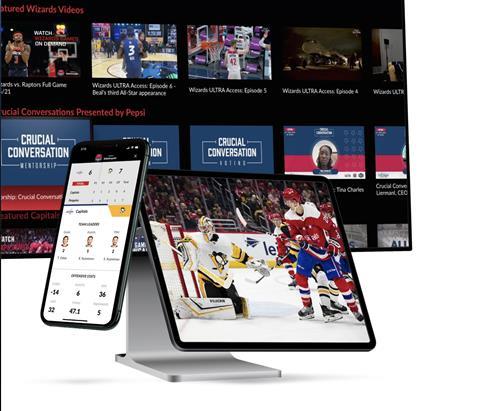Rick Allen of ViewLift explains why leagues and teams should meet younger fans on their own terms to fully engage them

Gen Z sports fans are a new breed. They want to be interactively engaged game analysts on the go, not just armchair enthusiasts.
What’s more, engaging Gen Z through online initiatives fuelled by sports data is revolutionising conventional fandom, turning it into a vibrant and even immersive experience. This younger generation finds significance in the stories conveyed by statistics, getting into the details about players and teams, and intensifying their emotional attachment to a given sport.
Being the first generation to have comprehensive player data at their fingertips, Gen Z individuals are more than mere spectators; they are empowered analysts who find joy in dissecting the game’s intricacies. Their use of predictive tools fuelled by data drives their active engagement in sports.
The preferred platforms for Gen-Z fans to consume football content are creator-led, with YouTube and Instagram topping the list, followed by TikTok and Twitter/X. These figures highlight the fact sports businesses need to re-examine how they communicate and engage with their future fanbase.
Gen Z fans exhibit a higher inclination to engage with a sport not only during the game but also before and after, according to numerous studies. The upshot is leagues and teams need to leverage their social channels to lead Gen Zers to stream pre-game shows, enticing them to remain invested throughout the game.
Post-game, utilise social platforms, data insights, and the fan community to actively involve Gen Z enthusiasts through highlights and player reactions that they can share a comment on. Make the whole game experience a broader fan journey that the Gen Zer wants to navigate.
Put the athletes front and centre
Athletes have long played a significant role in popular culture as celebrities, style icons, entertainers and now podcast hosts and social media trendsetters – and this is even more true in the Gen Z media world today. The influence of individual sports stars online increasingly transcends their athletic performance, with legendary figures like LeBron James, Patrick Mahomes, and Lionel Messi surpassing the collective social media followings of their respective leagues, clubs, and teams.
The lure of any sport can be heightened by showcasing the human side of its players and connected figures. Present-day leagues provide their athletes, many of whom are Gen Zers themselves, with greater opportunities to express their personalities than previous sports governing bodies. For instance, the NHL recognised the influence of social media early on and initiated a training program for players to leverage social platforms in building their personal brands.
Social media aimed at younger fans is tailored for brief video formats like game highlights, interviews, behind-the-scenes narratives, and even player podcasts – making on-field heroes more relatable.
Longer-form programming is being streamed to match. Consider Drive to Survive, described by producer Paul Martin as “Game of Thrones in fast cars”. The show captures Gen Z’s interest through its diversity, interactivity, and creativity. It’s not solely about cars but delves into the realms of people, narratives, and emotions. Even with athletes navigating multi-million-dollar F1 cars, fans connect more with the driver’s persona than their vehicle.
Show your commitment to Gen Z fans
Gen Z’s enjoyment of sports is frequently hands-on, involving activities such as managing a fantasy team, betting in-game, or immersing themselves in the e-sport version of a physical game. Participation extends to interacting with teams and friends through social media, watch parties, and other digital touchpoints. It also encompasses playing at a personal level, whether physically or as an electronic gamer – which for many participants translates into watching the pros more closely.
Gen Z possesses a genuine but unique interest in sports, but their engagement is shaped by their own preferences. Traditional norms, especially those dictating how one should watch and follow sports – typically on a living room or bar room TV – don’t matter to Gen Z, who have grown up living much of their lives online.
To connect with Gen Z fans, sports organisations must adapt, acknowledging and catering to their more scattered and digitally driven engagement with sports. By demonstrating their dedication to this audience by fuelling the digital tools they use, leagues and teams can pave the way for the next generation of fans to embrace the excitement of live sports in their distinct and personalised ways.

Rick Allen is the CEO of ViewLift, a streaming and monetisation platform whose sports clients include the NHL, Monumental Sports, the Vegas Golden Knights, the PFL and leagues and teams around the world.





No comments yet